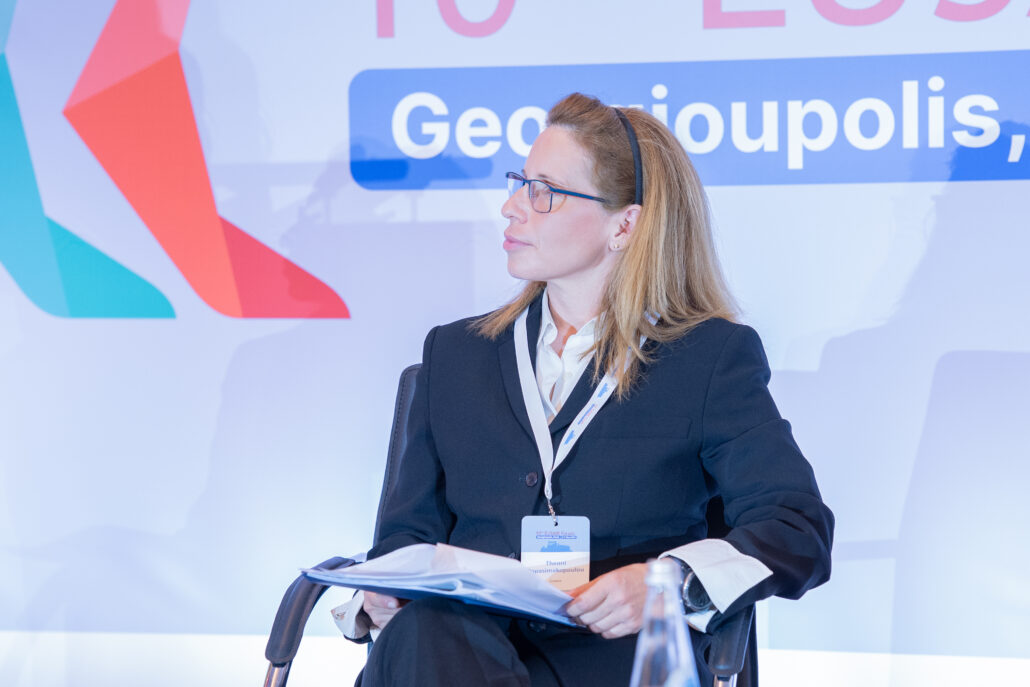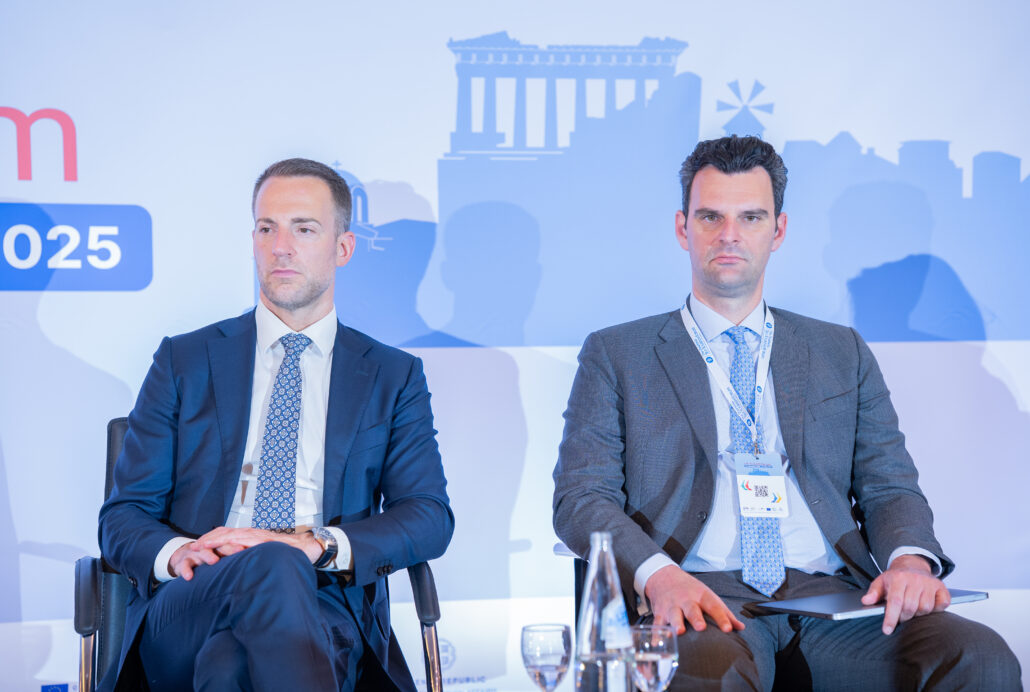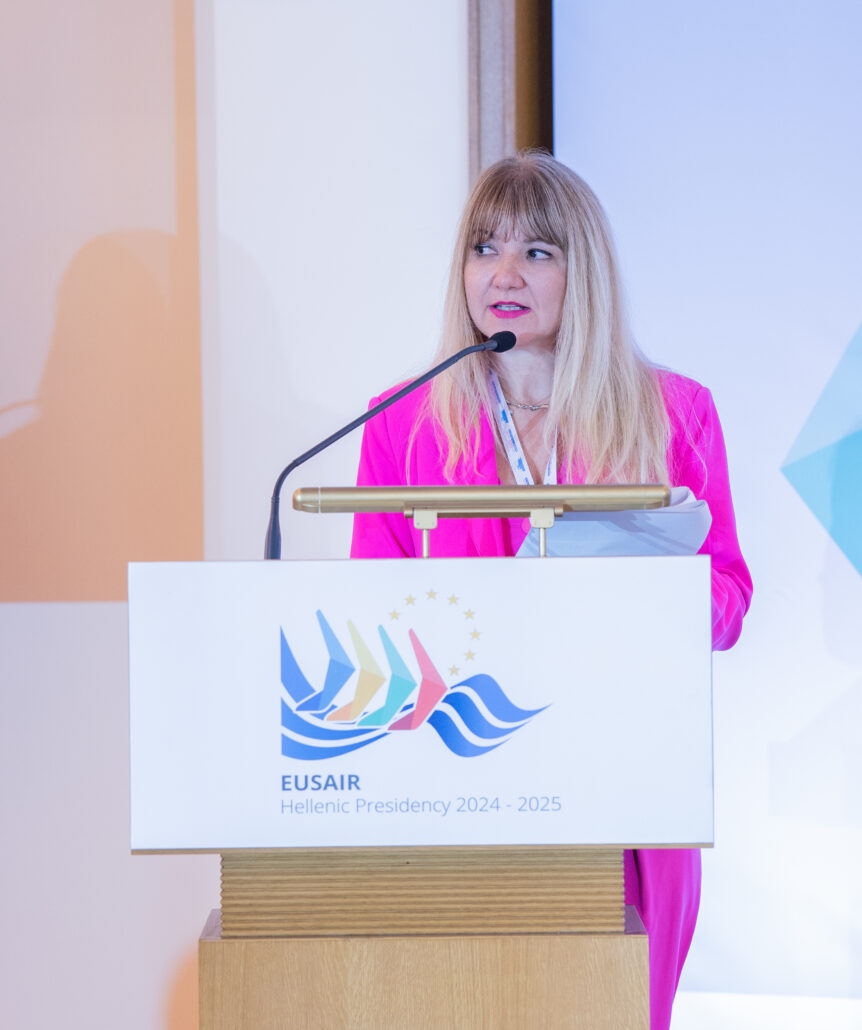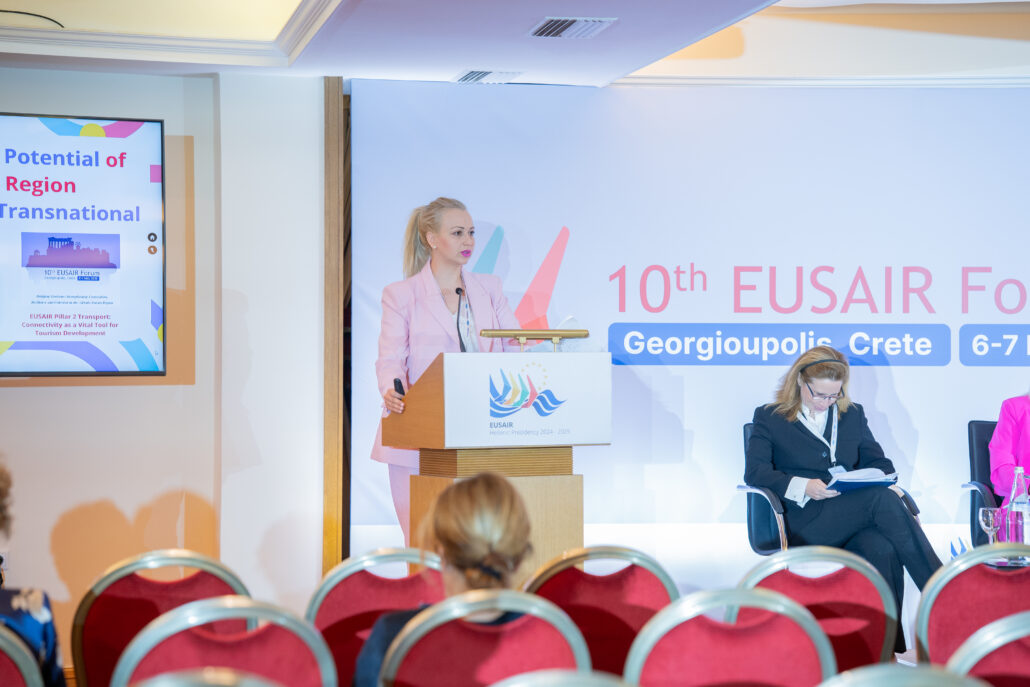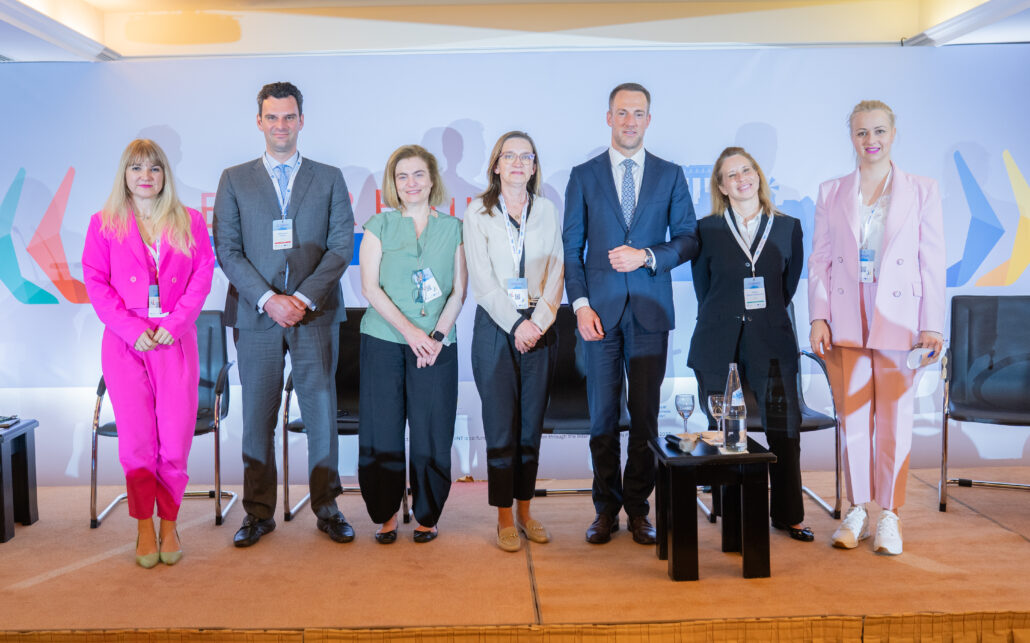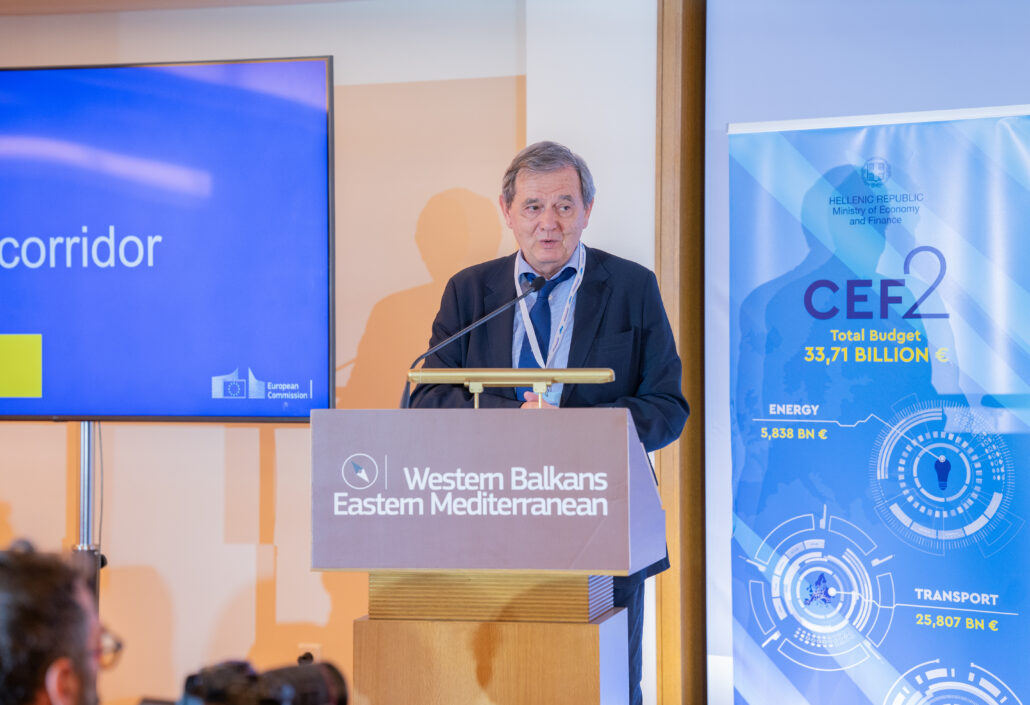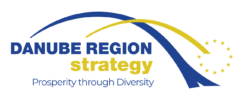10th EUSAIR Annual Forum
Crete, Greece | 6th-7th May 2025On May 7, 2025, during the 10th EUSAIR Annual Forum held in Crete, Greece, a thematic session was held under Pillar 2 – Transport, titled “Connectivity as a Vital Tool for Tourism Development.” The session addressed the strategic importance of sustainable and accessible transport systems in enhancing tourism across the Adriatic-Ionian Region.
The session was chaired by Ms. Theoni Papasimakopoulou (Hellenic Ministry of Infrastructure and Transport) and co-chaired by Dr. Evangelia Kaselimi (Hellenic Ministry of Maritime Affairs and Insular Policy), who introduced key priorities, such as the role of urban nodes in closing accessibility gaps and ensuring a more sustainable tourism traffic and the importance of integrating growth, connectivity, and digital access, particularly in underserved areas.
The panel discussion brought together experts who offered diverse insights into transport’s contribution to sustainable tourism. Mr. Matej Zakonjsek (Transport Community Permanent Secretariat) presented an overview of the TEN-T network status in the Western Balkans, underlining critical bottlenecks near cross-border points and stressing the need to address infrastructure gaps.
Mr. Athanasios Porfyris (Igoumenitsa Port Authority) showcased the port of Igoumenitsa as a best-practice example of intermodal infrastructure that supports both regional connectivity and tourism flows.
Dr. Maria Morfoulaki (CERTH/HIT) highlighted the deep interconnection between mobility and tourism, identifying overtourism as an emerging challenge. Her intervention focused on the promotion of integrated sustainable mobility planning, demand management, green mobility modes such as walking and cycling, digital solutions for smart transport, and the active involvement of stakeholders and citizens.
Dr. Glykeria Myrovali (CERTH/HIT) addressed the need to rethink tourism through the lens of transport planning. She discussed approaches to inclusive and accessible mobility, and how transport needs assessments can shape tourism strategies that are better aligned with sustainability goals.
The session concluded with the presentation of results from a targeted questionnaire distributed among members of the Pillar 2 Transport, reinforcing the need to align transport and tourism policies, promote seamless multimodal solutions, and close accessibility gaps. The discussion reaffirmed EUSAIR’s role as a key platform for coordination, helping to foster economic resilience and the sustainable valorisation of the region’s cultural and natural assets.





